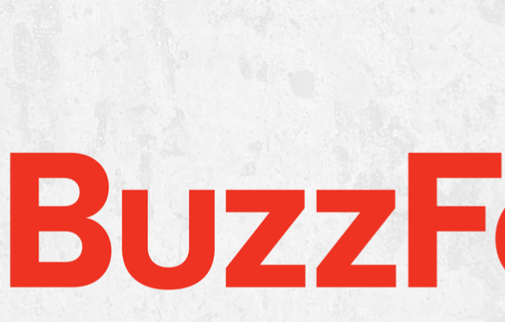Guest Columns
The Buzz on Buzzfeed
Tale of the rise and fall of Buzzfeed, the leftist alternative-media site that published the infamous Steele Dossier.

The following is a condensed version of “The Buzz on Buzzfeed” by Tony Spanakos, published at Law & Liberty.
In 2023, Buzzfeed and Vice announced that they were shutting down the news sections of their websites. In its short life, Buzzfeed news made the Steele Dossier available and its reporting on the treatment of Uyghurs in Xinjiang received a Pulitzer Prize. At one point upstart social media news companies like Buzzfeed seemed poised to devour the New York Times, now the clear winner of the web news wars. How and why did Buzzfeed rise so spectacularly and recede with little notice? This is the story Ben Smith tells in Traffic: Genius, Rivalry, and Delusion in the Billion-Dollar Race to Go Viral.
The book examines the pursuit of traffic by a number of leaders in the social media world based primarily in New York City in the early twenty-first century. Eschewing opportunities to analyze the industry or its effects on politics, the book is primarily a story that follows the trajectory of Jonah Paretti (Huffington Post, Buzzfeed), Nick Denton (Gawker, Jezebel), and the people who entered and exited their social and professional networks. The author, Ben Smith, an early writer of political blogs, moved to Politico before becoming news director at Buzzfeed and then media columnist at the New York Times and co-founder of Semafor. He was the architect of the Buzzfeed news team and was part of the company’s inner circle.
Traffic begins and ends with a bet between two MIT students, Jonah Paretti and Cameron Marlow about whether one could make a post go viral or whether the internet’s whims were random and unpredictable. Paretti believed he could manipulate reactions and, having had success with a prank of Nike, he began a one and half decade pursuit of how to understand and direct internet traffic. Shortly after describing the bet, Smith introduces Nick Denton, a rash, dot.com entrepreneur who believed in the value of the internet to rip apart the establishment and its moral values through a new radical regime of transparency.
This story is, perhaps unintentionally, tragic, a tale of innocence lost. Denton, from about 2010, mellowed and even has doubts about the behavior in which he engaged—and in which his companies continued to engage. He learned he was not simply a force of transparency but that there was something wrong with exposing the personal lives of other people, even if they happened to be hypocrites. Paretti seemed to game the internet, but Smith concludes that the internet was in fact beyond them: there is a randomness to it. If Paretti won the bet, the victory was pyrrhic.
Traffic discusses how certain types of indiscreet content were published and commented upon by social media companies’ new cadre of journalists. Early on, this content was the main product, not just bait. Oddly, Traffic reveals there was little discussion of what should published, only whether it would harm a hypocrite, if there was legal protection. He notes that this was not traditional journalism but does not push his thoughts further on the matter. The reader looking for something beyond everyone rushing to quantify views and likes should instead look at the works of Han Byung-Chul, who addresses such questions with more depth.
Smith avoids moralizing, which is welcome but, at times, unsatisfying. The only time Smith seeks to offer some ethical explanation is in his discussion of the decision to publish the Steele Dossier which contained numerous allegations that connected Russian president Vladimir Putin to recently-elected US president Donald Trump. He and his team decided to post the full dossier with a brief explanation that the document contained some false information and other information that could not be verified. The caveat given, the dossier entered into cyberspace and was now open to interpretation by all and sundry.
Why publish it? The establishment media in their elitist, paternalistic, patronizing way had kept it from the public and Buzzfeed was now driving the bus. It was paradigmatic of new social media’s pretensions: the release into an open forum of the scandalous personal activity of one of the world’s most talked about celebrities, a leader of the conservative political movement. A hat trick the stodgy, gray lady would never have allowed. But, unlike video uploads and leaked audio, the report contained only allegations, and the Buzzfeed staff knew that the caveats included with the document would not get much attention.
Was there a price for seeking attention? Internal deliberations focused only ‘can we get away with this?’ Did no one think that there was a human cost to an exposé which was not merely text but explicit images? Traffic seems to justify the absence of such reflection because smart people were simply following through on a bet in a fast-paced world cheered on by the massive movement of money and the multitude’s attention. But the characters were not merchants of commonplace knick knacks but people who communicate the majority of the information about the world that people consume on a regular basis. How is that to be squared with a Pulitzer Prize for reporting on mass detention in China?
This article was originally published by Law & Liberty Exclusive and made available via RealClearWire.
Tony Spanakos is professor of Political Science and Law at Montclair State University. He is the co-editor of the Conceptualising Comparative Politics series (Routledge).
-

 Civilization2 days ago
Civilization2 days agoWhy Europe Shouldn’t Be Upset at Trump’s Venezuelan Actions
-

 Accountability5 days ago
Accountability5 days agoWaste of the Day: Principal Bought Lobster with School Funds
-

 Executive3 days ago
Executive3 days agoHow Relaxed COVID-Era Rules Fueled Minnesota’s Biggest Scam
-

 Constitution4 days ago
Constitution4 days agoTrump, Canada, and the Constitutional Problem Beneath the Bridge
-

 Christianity Today2 days ago
Christianity Today2 days agoSurprising Revival: Gen Z Men & Highly Educated Lead Return to Religion
-

 Civilization3 days ago
Civilization3 days agoThe End of Purple States and Competitive Districts
-

 Executive3 days ago
Executive3 days agoWaste of the Day: Can You Hear Me Now?
-

 Executive4 days ago
Executive4 days agoWaste of the Day: States Spent Welfare in “Crazy Ways”










